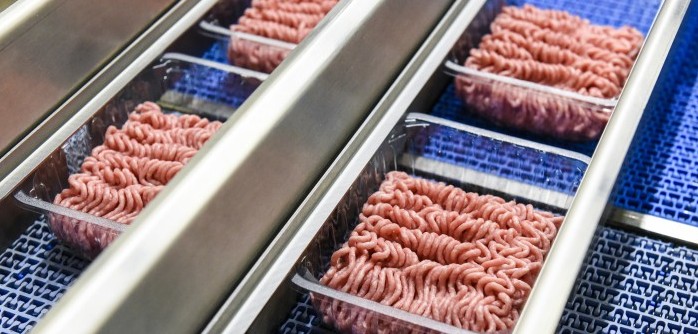Tulip has voluntarily suspended exports from one of its sites in the West Midlands where a cluster of COVID-19 cases has been found.
To date, 10 workers among Tulip’s Tipton site’s 600-strong workforce have tested positive over the past three weeks since testing facilities became widely available, and three workers are currently self-isolating. The processor recently announced the site is closing, following a staff consultation.
Tulip has confirmed that it has ‘voluntarily suspended all pork exports from the Tipton site’, although it is not giving any further details.
The move comes as China has reportedly suspended imports from plants with large COVID-19 outbreaks, including a Tyson poultry plant in the US, while other plants around the world, including in Brazil and Germany, have voluntarily suspended China exports from affected plants.
In a statement, Public Health England (PHE) Midlands said is working with Sandwell Council, the HSE and local NHS colleagues, to support Tulip Ltd in Tipton, following confirmation of the cases. Any affected individuals are being asked to self-isolate at home for seven days, with members of their households to isolate for 14 days.
Dr James Chipwete, PHE Midlands Consultant in Communicable Disease Control said: “The management at Tulip Ltd are cooperating fully with public health professionals and members of the HSE, to protect the health and wellbeing of their workforce.
“We are dealing with a large workforce of almost 600 people, and despite putting a range of infection control measures in place to protect staff from potential exposure to COVID-19, there have been a number of cases among workers.”
Tipton closure
Tulip has confirmed that the Tipton plant will close, following a consultation with employee representatives that began in March.
A Tulip spokesperson said: “Tulip can confirm it has reached a decision to close its fresh pork manufacturing site in Tipton following a collective consultation process with employee and union representatives. This was communicated to all employees upon the end of consultation on Wednesday June 10.
“The business is now in individual consultations with those impacted by this decision. Support is being made available to all those implicated in the site closure to explore opportunities for redeployment within the Tulip network as well as employment opportunities outside of the business in the local area.”
The timing of the closure date will form part of discussions during individual consultations.
Commenting on the COVID-19 cases, the spokesperson added: “Safety is a condition within our business. When restrictions were introduced, and government guidelines issued in relation to coronavirus and food processing sites, our business has been working to these guidelines and liaising with UK Government, the Food Standards Agency, the Health & Safety Executive and Public Health England on all matters including social distancing and its application in food processing factories.
“We are proud of our team members at Tipton who, as key workers, have bravely responded to this global pandemic in the most challenging of local circumstances; their health and wellbeing is of the utmost importance and we welcome PHE Midlands’ support during these unprecedented times.”
PHE stressed that the risk of contracting COVID-19 through the UK food chain is very low. “There is currently no evidence to suggest transmission occurs through the foodborne route, therefore people are very unlikely to catch COVID-19 from food,” a spokesperson said.
A number of UK meat plants have been affected by COVID-19, including Cranswick’s Wombwell plant, in Barnsley, where three employees died after contracting the virus. 2 Sisters has recently closed its Anglesey chicken factory after more than 158 people tested positive for COVID-19.
Meanwhile, in Germany, more than 1,500 employees at a Tönnies plant in North Rhine-Westphalia have now tested positive, forcing the closure of the plant and reintroduction of local lockdown measures.
- Main picture is a mincing line installed at the Tipton plant.




